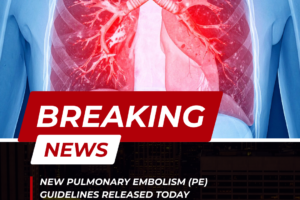Protein S & Protein C Deficiency Resources
Congenital Protein S and Protein C Deficiency are Inherited or Genetic Clotting Disorders
Protein S and Protein C are both natural substances in the blood that help to keep the blood from clotting. They act like natural anticoagulants or natural blood thinners. If you are deficient in one or both of these proteins, you are at an increased risk of developing dangerous blood clots, especially for women during pregnancy. * You can also acquire Proteins S deficiency from liver or kidney disease, HIV infection, or if you do not have enough vitamin K. This information focuses on the inherited or genetic form.
Signs and Symptoms of Blood Clots – What You Need to Know
If you have Congenital Protein S and/or Protein C Deficiency, you need to be aware of the symptoms of DVTs (Deep Vein Thrombosis or leg or arm clot) so you can seek medical attention.
If you have a Deep Vein Thrombosis or DVT you will notice:
- Pain or tenderness in your arm or leg – often described as a cramp or Charley horse – with one or more of the following:
- Swelling
- Red or purple skin color
- Warm to the touch
If a piece of a DVT breaks off and travels to the lung, it can cause a lung clot. We call this a pulmonary embolism or PE. A PE can be a life threatening medical emergency. You need to seek immediate medical attention if you have symptoms of a PE.
If you have a Pulmonary Embolism or PE (lung clot), you may experience:
- Difficulty breathing or shortness of breath
- Chest pain– especially when trying to breathe
- Rapid or racing heart beat
- Fainting or passing out
- Coughing up blood
Resources for More Information
You can find more information about Protein S and/or Protein C at these links below:
1. Congenital protein C or S deficiency (2012): A plain language description of the causes, symptoms, diagnostic tests, and treatment of Congenital Protein C or S Deficiency. From the National Institutes of Health
2. Protein S deficiency (2009): A discussion of Protein S Deficiency with a focus on the genetics of the condition. As part of the Genetics Home Reference Series from the National Institutes of Health
3. Protein C deficiency (2013): A discussion of protein C deficiency with a focus on the genetics of the condition. As part of the Genetics Home Reference Series from the National Institutes of Health.
4. Protein S deficiency: a clinical perspective (2008): A highly technical journal article on the clinical perspective of Protein S Deficiency.
5. Protein C deficiency (2008): A highly technical journal article presenting a review of the literature on the genetics, pathophysiology, diagnosis, management, and complications of Protein C deficiency
6. Deficiencies of Natural Anticoagulants, Protein C, Protein S, and Antithrombin (2011): A patient focused article on deficiencies in the natural anticoagulants or blood thinner including Protein C and Protein S. Discusses causes, diagnosis, treatment, complications, and testing.
7. Protein S Deficiency (2012): A comprehensive discussion of Protein S, including pathophysiology, epidemiology, clinical presentation, diagnosis and treatment.
8. Protein C Deficiency (2013): A comprehensive discussion of Protein C, including pathophysiology, epidemiology, clinical presentation, diagnosis and treatment.
You can read about people who have had Protein S or C deficiency and Blood Clots in their own voices or the voices of their family members:
Patient Stories of Protein S or C Deficiency in Their Own Voices
In Memory of Jason Michael Hilty: His Blood Clot Story
Julian Adams, a 5 Year Old, Tell His Blood Clot Story




